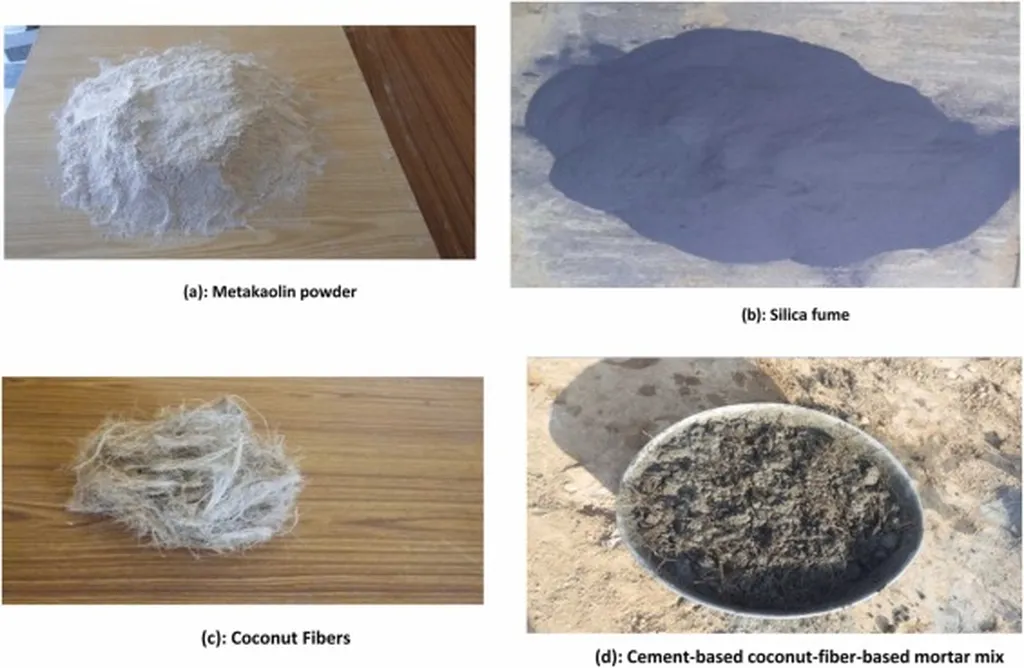In the quest for sustainable construction materials, researchers have turned to an unlikely ally: coconut fiber. A recent study published in the *e-Journal of Nondestructive Testing* (translated from German as *e-Journal of Non-Destructive Testing*) explores the potential of coconut fiber, or coir, to enhance the mechanical properties of geopolymer mortar, offering a promising alternative to traditional cement binders. The lead author, Khaira Gusti, whose affiliation is not specified, has uncovered findings that could reshape the construction industry’s approach to sustainability and resilience.
Geopolymer mortar, a binder made from industrial waste, has long been touted as an eco-friendly alternative to traditional cement. However, its lower flexural strength has limited its widespread adoption. Gusti’s research addresses this shortcoming by incorporating coconut fiber into the mix. “The idea was to leverage a waste product to improve the performance of an already sustainable material,” Gusti explains. “Coconut fiber is abundant in many regions and often discarded, making it an ideal candidate for this purpose.”
The study involved preparing geopolymer mortar specimens reinforced with coconut fiber in a laboratory setting. Mechanical tests were conducted to evaluate the enhanced properties, and acoustic emission technology provided in-depth insights into the material’s behavior under stress. The results were promising: the addition of coconut fiber significantly improved the mechanical properties of the geopolymer mortar.
“This research demonstrates that sustainable materials can also be high-performance materials,” Gusti notes. “By using coconut fiber, we not only enhance the strength of geopolymer mortar but also contribute to waste management and reduction of carbon emissions.”
The implications for the construction industry are substantial. As the world seeks to reduce carbon emissions, the demand for sustainable building materials is on the rise. Geopolymer mortar reinforced with coconut fiber could be a game-changer, offering a resilient and eco-friendly alternative to traditional cement. This innovation could be particularly impactful in regions where coconut production is prevalent, providing a local solution to global challenges.
Moreover, the use of acoustic emission analysis in this study highlights the importance of advanced testing methods in material science. By understanding the behavior of materials under stress, researchers can develop more robust and reliable construction materials. This approach could pave the way for future advancements in sustainable construction.
As the construction industry continues to evolve, the integration of sustainable materials and advanced testing methods will be crucial. Gusti’s research offers a glimpse into the future of construction, where waste materials are transformed into valuable resources, and eco-friendly solutions are prioritized. The findings published in the *e-Journal of Nondestructive Testing* not only advance our understanding of geopolymer mortar but also inspire further innovation in the field.
In the words of Gusti, “This is just the beginning. There is so much more to explore in the realm of sustainable construction materials.” As researchers and industry professionals continue to collaborate, the possibilities for a greener, more resilient future are endless.

